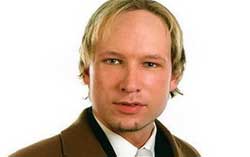There is not a single aspect of the Christian message that is not in part an answer to the question of evil. (Catechism of the Catholic Church, par. 309.)
 There are days when there are just no words, when the specter of evil overshadows us all, and we feel feeble and dwarfed by its presence. Witnessing an unprovoked attack on innocent people—be it a bombing, a shooting rampage, or some other atrocity—often renders us speechless. Yet speak we must. There must be words not only denouncing such evil, but also prayers unto heaven that cry out for justice and succor in the aftermath.
There are days when there are just no words, when the specter of evil overshadows us all, and we feel feeble and dwarfed by its presence. Witnessing an unprovoked attack on innocent people—be it a bombing, a shooting rampage, or some other atrocity—often renders us speechless. Yet speak we must. There must be words not only denouncing such evil, but also prayers unto heaven that cry out for justice and succor in the aftermath.
And there must be words that announce hope.
Amid shock and dismay, and our wrestling with the presence of evil, there is also God—who speaks a word in the face of evil and death.
That word is Providence—Divine Providence.
In our finite minds, we often mistakenly see good and evil as equal powers; they are not.
But our minds are so impressed and distressed by evil that we are tempted to believe it.
The truth is that evil is limited; it comes from created sources. Goodness, by contrast, is an attribute of an uncreated, almighty God—the Author of creation—and God's Providence encompasses and upholds all of creation. Goodness outweighs evil because it originates and flows from God.
God's Providence is his Work and Will guiding all of creation toward perfection that is yet to be attained. But as creation is in a state of journeying toward that fullness, we will encounter evil along the way. God's good plan for creation moves forward, even when we do not understand our troubled circumstances. Surprisingly, within that plan, God would choose to use us rather than usurp us; God never ignores our human dignity.
God dignifies human persons by giving them intelligence and free will, inviting us to act with him in a god-like manner. This is precisely so that each person may choose their destiny.
God is the sovereign master of his plan. But to carry it out he also makes use of his creatures' co-operation. This use is not a sign of weakness, but rather a token of almighty God's greatness and goodness. For God grants his creatures not only their existence, but also the dignity of acting on their own, of being causes and principles for each other, and thus of co-operating in the accomplishment of his plan. (Catechism of the Catholic Church [CCC], par. 306.)
By cooperating with God, therefore, we advance his providence.
To human beings God even gives the power of freely sharing in his providence by entrusting them with the responsibility of "subduing" the earth and having dominion over it . . .Though often unconscious collaborators with God's will, they can also enter deliberately into the divine plan by their actions, their prayers and their sufferings. They then fully become "God's fellow workers" and co-workers for his kingdom. (Catechism of the Catholic Church [CCC], par. 307.)
When people make godly decisions, they become perfected. When they choose otherwise, they sin and go astray. Thus, evil enters the world, embodied in our harmful actions toward others.
God created us with the power to choose, and he never takes that privilege away, even when it means we are capable of becoming co-workers with evil rather than for good.
Why would that be?
God is in no way, directly or indirectly, the cause of moral evil. He permits it, however, because he respects the freedom of his creatures and, mysteriously, knows how to derive good from it. (CCC 311.)
Only God can bring something Good from evil. It sounds crazy, even unfathomable—but in God's economy, evil is never as powerful as Providence. We glimpse this mystery in the words of St. Paul.
We know that in everything God works for good for those who love him (Rom. 8:28).
This is illustrated most profoundly in the crucifixion of Jesus Christ—the most heinous, and most monstrous evil ever committed, caused by the sins of all people. Evil doesn't get any worse than the chosen Son of God being rejected, brutally tortured, and murdered.





